Every car comes with a parking brake, and we (the drivers) use them often. But what do the experts say about how often we should use our parking brakes? Do you know how your parking brake works? What happens if you forget to take off the parking brake while driving?
This post should answer all of your questions about your car’s parking brake and then some.
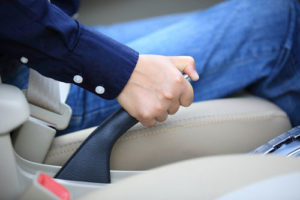
What is a Parking Brake?
First off, let’s establish what a parking brake is and how it works.
In general, brakes apply pressure to the back wheels of a car. A parking brake can be a set of cables or a locking mechanism that prevent the car’s wheels from slipping or rotating when the vehicle should be motionless. The parking brake stays in place until disengaged.
Parking brakes are called by different names, such as “e-brake,” “emergency brake,” and “handbrake.” They were originally designed as a secondary set of brakes if the primary pair failed. Pulling the hand brake while driving will bring your car to an emergency stop. This is the reason that parking brakes sometimes are called “e-brakes.”
Now, emergency brakes are used primarily to keep a vehicle stationary.
You may encounter different types of parking brakes depending on the car as they have changed over the years. Some have levers, foot mechanisms, and buttons. Do you know how to set the parking brake in each of these situations?
The Right Way to Set a Parking Brake
There are three different types of parking brakes that you may encounter depending on your car.
- If you have an older car, you will probably have a lever in the middle console. To engage the brake, you will pull up on the lever located between the driver’s seat and the front passenger’s seat. To disengage the parking brake, push the button at the end of the lever and push it back down.This is where the name “handbrake” comes from. However, it isn’t used as often with new cars.
- Some cars have the parking brake mechanism on the lower left side of the steering wheel. If this is the case, push down to engage the parking brake. To disengage, push firmly down again. You should hear a click followed by the parking brake’s release.
- In newer cars, the parking brake is a button. A light is activated when the parking brake is engaged. To disengage the parking brake merely push the button again.
In every situation, you should set the parking brake while your foot is pressed on the brake pedal and before you shift the car into “park.”
When Should You Use the Emergency Brake?
Most people who own a car only use their emergency brake when it’s parked on a hill, hence the term “parking brake.” But, experts say something different.
Really, you should use your parking brake every time you park your vehicle. That’s right. Even if you’re parking on flat ground.
Get this. There’s a law in Texas that says a driver that leaves their car parked without the parking brake engaged is punishable by law.
Primarily, the reason is safety. Using a parking brake could protect others from a runaway car. Or, it could prevent further damage if your vehicle is hit by another car.
Parked cars rely on a large metal mechanism in the transmission called a parking pawl. Although it’s not common, it is possible for the pawl to malfunction. Using the parking brake while the car is in park minimizes the strain on the pawl. This is why it is crucial to engage the parking brake before shifting your car into “park.”
What Happens if the Emergency Brake is Engaged While Driving?
Most cars come with parking brake lights in the cluster gauge that alert you when the brake is engaged. However, sometimes distractions get in the way, and we forget to disengage the parking brake before taking off.
If you end up driving with the parking brake on, you may notice that your car is not accelerating as quickly. It can also create a burning smell, which is always a warning sign you shouldn’t ignore. If you notice these signs, take off your parking brake immediately.
The brakes create friction on the brake pads, and the rotors create heat. If you drive too long under these conditions, it could heat up the brake fluid until it boils. Boiling brake fluid won’t generate the pressure needed to slow your car down. Therefore, your brakes will stop working properly, and you will have to see a mechanic and get this fixed.
If you find that this happens, but there doesn’t seem to be immediate damage, we still suggest you take your car to your trusted mechanic. You don’t want to ignore damages that may lead to more significant issues.
We are always happy to answer questions you may have about your parking brakes. If you feel like you should get yours looked at contact us today.

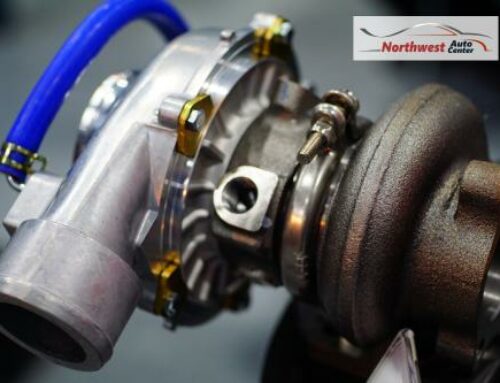
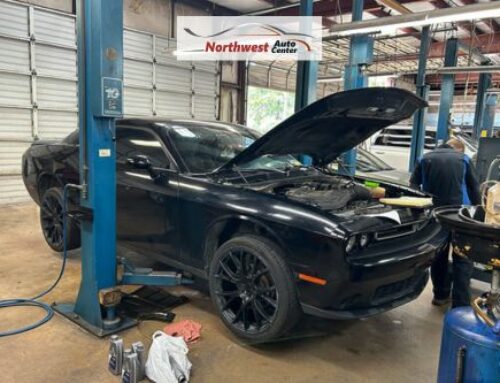
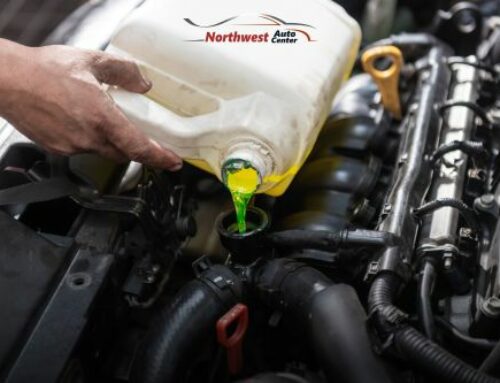
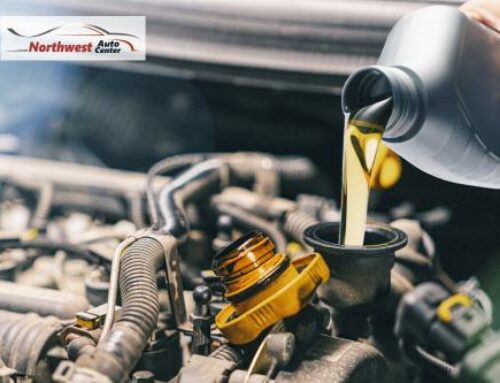
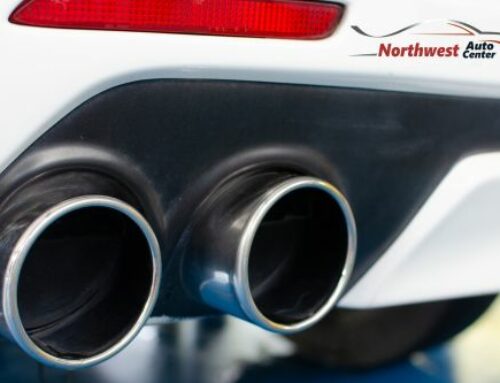
Leave A Comment
You must be logged in to post a comment.